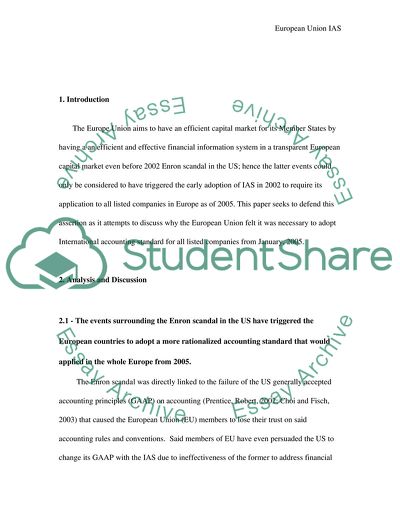Cite this document
(The European Union Necessity to Adopt International Accounting Term Paper, n.d.)
The European Union Necessity to Adopt International Accounting Term Paper. Retrieved from https://studentshare.org/finance-accounting/1712335-research-and-discuss-why-the-european-union-felt-it-was-necessary-to-adopt-international-accounting-standards-for-all-listed-companies-from-january-2005
The European Union Necessity to Adopt International Accounting Term Paper. Retrieved from https://studentshare.org/finance-accounting/1712335-research-and-discuss-why-the-european-union-felt-it-was-necessary-to-adopt-international-accounting-standards-for-all-listed-companies-from-january-2005
(The European Union Necessity to Adopt International Accounting Term Paper)
The European Union Necessity to Adopt International Accounting Term Paper. https://studentshare.org/finance-accounting/1712335-research-and-discuss-why-the-european-union-felt-it-was-necessary-to-adopt-international-accounting-standards-for-all-listed-companies-from-january-2005.
The European Union Necessity to Adopt International Accounting Term Paper. https://studentshare.org/finance-accounting/1712335-research-and-discuss-why-the-european-union-felt-it-was-necessary-to-adopt-international-accounting-standards-for-all-listed-companies-from-january-2005.
“The European Union Necessity to Adopt International Accounting Term Paper”. https://studentshare.org/finance-accounting/1712335-research-and-discuss-why-the-european-union-felt-it-was-necessary-to-adopt-international-accounting-standards-for-all-listed-companies-from-january-2005.


